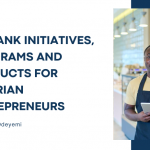The Nigerian Content Development and Monitoring Board has partnered with the Nigerian Society of Engineers to launch the Nigerian Engineering Olympiad, a nationwide innovation program designed to close the technical skills gap among engineering graduates and build a stronger pipeline of industry-ready talent.
The initiative, introduced in Abuja, places emphasis on practical learning, innovation and hands-on competence across energy, manufacturing, infrastructure and technology sectors.
The organizers explained that the Olympiad became necessary after a recent national survey showed that only a small percentage of engineering graduates possess the technical proficiency required by employers, while a majority lack the fundamental skills needed in emerging and high-tech fields. This gap, they noted, has led to increased reliance on expatriates and contributed to the steady outflow of young Nigerian engineers seeking opportunities abroad.
The new programme forms part of a broader human capacity development strategy aimed at identifying exceptional young engineers and connecting them with mentorship opportunities, prototype development support and pathways to commercialisation. According to the Board, deeper cooperation between academia, industry, government and innovation institutions is essential to transforming classroom research into real-world engineering solutions that can support industrial growth.
Designed as a 10-month innovation journey, the Olympiad will run through regional qualifying stages, mentorship rounds and prototype bootcamps before culminating in a national finale in April 2026. Participants who excel will receive seed funding and technical guidance to refine their prototypes into commercially viable products. The organisers added that this approach will help nurture entrepreneurship, strengthen technology-focused SMEs and expand Nigeria’s market for locally engineered solutions.
The Nigerian Society of Engineers emphasised that one of the sector’s biggest challenges is the stagnation of inventions developed within universities, many of which never advance beyond academic presentations or basic project levels. The Olympiad offers a structured pathway that prioritises prototype refinement, validation, intellectual property protection and eventual market entry, ensuring that local ideas are not lost or overlooked.
The organisers urged the media to amplify the programme to inspire young innovators and called for government support to scale initiatives that build domestic engineering capacity. Experienced engineers will be deployed to mentor participants throughout the competition, providing guidance across technical development, design improvement and product feasibility.
The Olympiad is supported by several industry partners committed to positioning Nigeria as a hub for indigenous engineering solutions.
Stakeholders say the programme represents a strategic step toward building a more competent engineering workforce, supporting technology-driven SMEs and driving national industrial development through sustained innovation and entrepreneurship.










